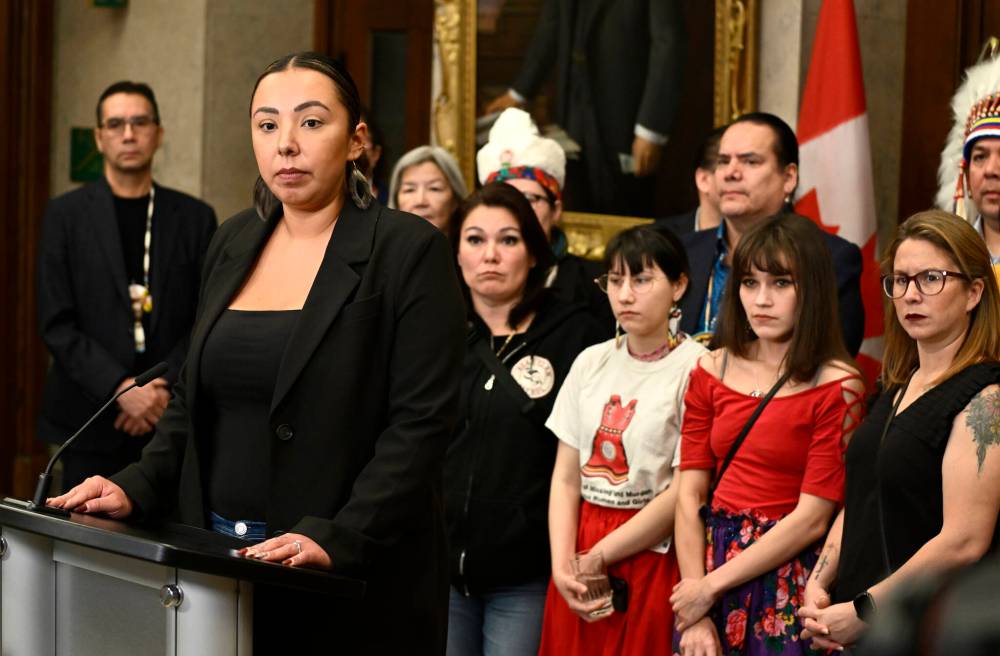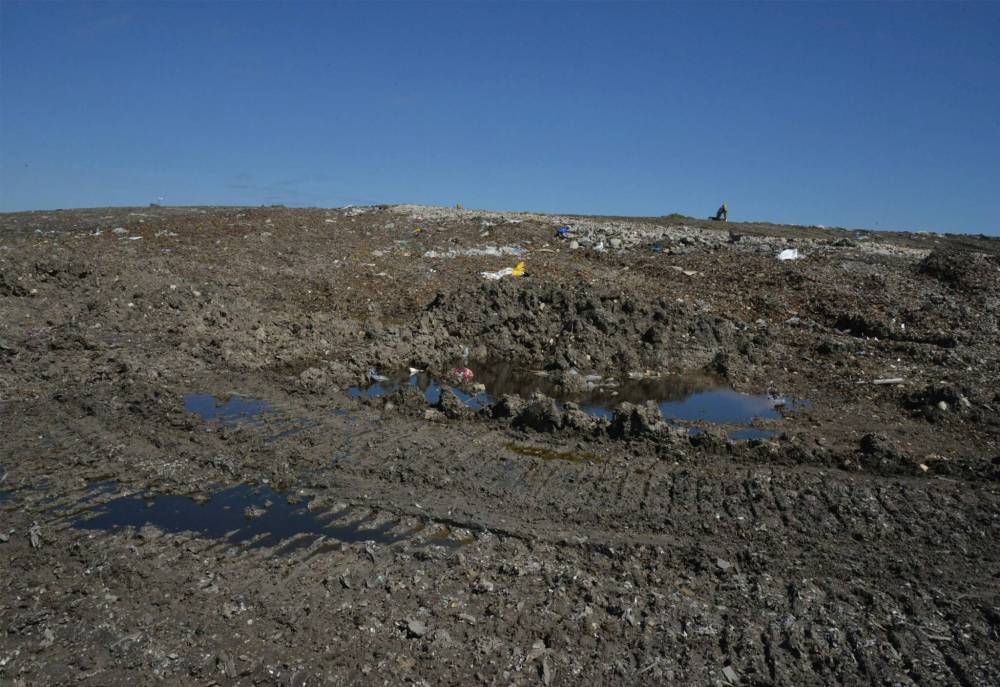Dead woman’s family, First Nations call for Winnipeg police chief’s resignation
Advertisement
Read this article for free:
or
Already have an account? Log in here »
To continue reading, please subscribe:
Monthly Digital Subscription
$19 $0 for the first 4 weeks*
- Enjoy unlimited reading on winnipegfreepress.com
- Read the E-Edition, our digital replica newspaper
- Access News Break, our award-winning app
- Play interactive puzzles
*No charge for four weeks then billed as $19 plus GST every four weeks. Offer only available to new and qualified returning subscribers. Cancel any time.
Read unlimited articles for free today:
or
Already have an account? Log in here »
Hey there, time traveller!
This article was published 07/12/2022 (748 days ago), so information in it may no longer be current.
Manitoba First Nations leaders and the daughters of a woman believed to have been slain by an alleged serial killer are calling for Winnipeg’s police chief to resign after he said searching a landfill for victims’ remains would not be feasible.
Winnipeg police said this week the remains of Morgan Harris, 39, and Marcedes Myran, 26, were thought to be in the same truckload that was disposed of in the Prairie Green Landfill, north of the city, on May 16, days after each woman was killed.
Homicide detectives learned the bodies of the victims were likely in the landfill 34 days later.

JUSTIN TANG / THE CANADIAN PRESS FILES
“To me, the message you are sending is that our women do not matter, Indigenous women do not matter. And that is a very, very sad statement to make, whether that is directly or indirectly,” said Long Plain First Nation Chief Kyra Wilson.
On Tuesday, Winnipeg Police Service Chief Danny Smyth and the inspector of forensics told reporters a landfill search isn’t feasible for a variety of reasons, including the passage of time, safety concerns and the overwhelming amount of material at the site, including 1,500 tonnes of animal remains and 250 tonnes of cancer-causing asbestos.
At an Ottawa press conference calling for Smyth’s immediate resignation, Long Plain First Nation Chief Kyra Wilson was flanked by Harris’s daughters, Cambria and Kera, and leaders of the Assembly of Manitoba Chiefs, the Southern Chiefs’ Organization and Manitoba Keewatinowi Okimakanak and the regional leader of the national Assembly of First Nations.
“To me, the message you are sending is that our women do not matter, Indigenous women do not matter. And that is a very, very sad statement to make, whether that is directly or indirectly,” Wilson told reporters Thursday.
“The message you are sending to the greater community, to the non-Indigenous community, is that Indigenous women don’t matter, that if somebody wants to target and hurt our women, that they can dump them in the landfill and no one will look for them.”
Winnipeg police did not respond to Free Press requests for Smyth’s response.
However, on radio station CJOB Thursday morning, he said any search at Prairie Green in the Rural Municipality of Rosser would be akin to an archaeological dig.
“If we’re going to seriously look at a recovery mission… I think the right people need to be the lead on that and that’s not a police skill,” he told CJOB.
After they met late Thursday, Premier Heather Stefanson and Winnipeg Mayor Scott Gillingham said Waste Connections, the operator of the landfill, will temporarily pause operations at the site while officials figure out the next steps in the investigation. It has been 207 days since the women’s remains were believed to have been disposed of at the facility.
“Everything is status quo right now,” Winnipeg Police Board chair Markus Chambers said on his way into a meeting at police headquarters when he was asked about the calls for Smyth’s resignation.
“The only thing we’re focusing (on) now is ensuring that the operations at that site are paused so that we can determine what those next steps are.”
Both Harris and Myran are originally from Long Plain First Nation, about 90 kilometres west of Winnipeg.
The women were allegedly slain by 35-year-old Jeremy Skibicki of Winnipeg, who is also charged with the May killing of Rebecca Contois, 24, and a yet-to-be-identified woman named by Indigenous elders as Mashkode Bizhiki’ikwe (Buffalo Woman), believed to have been killed in March.
Contois’ partial remains were found in a garbage bin in North Kildonan in May. Weeks later, after shutting down and searching through a section of the Brady Road landfill, forensics investigators found the rest of her body. Police said this week the two sites — Brady and Prairie Green — presented vastly different scenarios.

SUPPLIED
Prairie Green landfill.
At Prairie Green, the truckload believed to have contained the victims’ remains has been compacted under 12 metres of wet construction clay, police said.
Police investigators have not found a “definitive” location of Mashkode Bizhiki’ikwe’s remains.
Kera Harris said she was fed up with police not acting to find the remains of her mother and the other two victims.
“Not only have you refused to search these landfills, you have presented no alternative routes of how we can give these women peace. We have been the ones thinking of a different resolution for this issue and we should not be the ones coming up with ways to make you do your job better,” she said.
“It feels as though you intend to just keep dumping trash on these remains and we don’t know how many more have been dumped there over the years.”
Wilson said it was difficult to know whether a different police chief would authorize a search of the landfill.
“When it comes down to asking the chief of police to resign, it’s because he’s not doing his job. If he’s not going to do his job, and the next person is not going to do their job, we’ll keep at it until we have somebody in that role that is going to work with everyone to support our families, to support our communities, to ensure that all of our people are safe,” she said.
— with files from Joyanne Pursaga
erik.pindera@freepress.mb.ca
Twitter: @erik_pindera

Erik Pindera
Reporter
Erik Pindera reports for the city desk, with a particular focus on crime and justice.
Our newsroom depends on a growing audience of readers to power our journalism. If you are not a paid reader, please consider becoming a subscriber.
Our newsroom depends on its audience of readers to power our journalism. Thank you for your support.


















